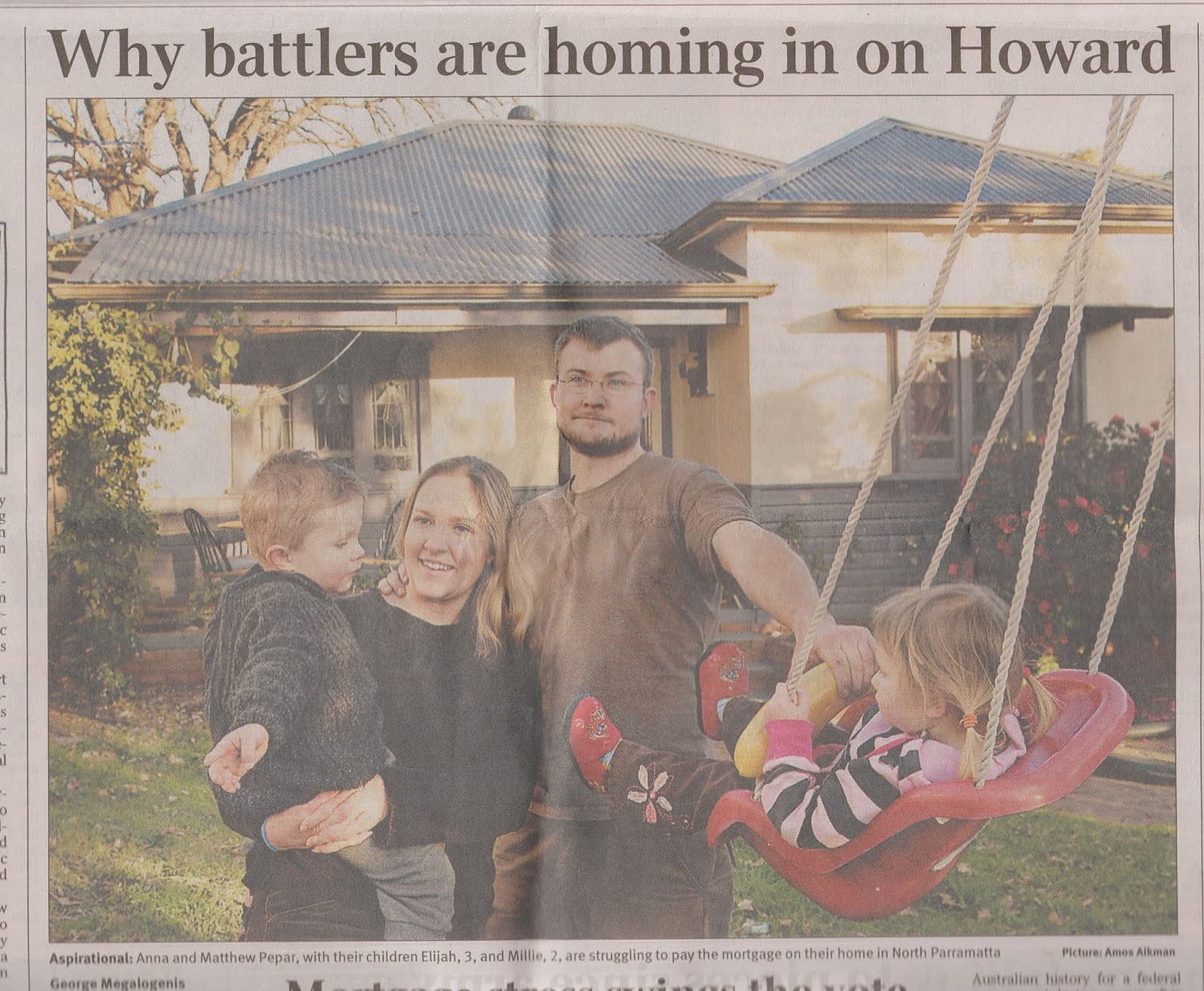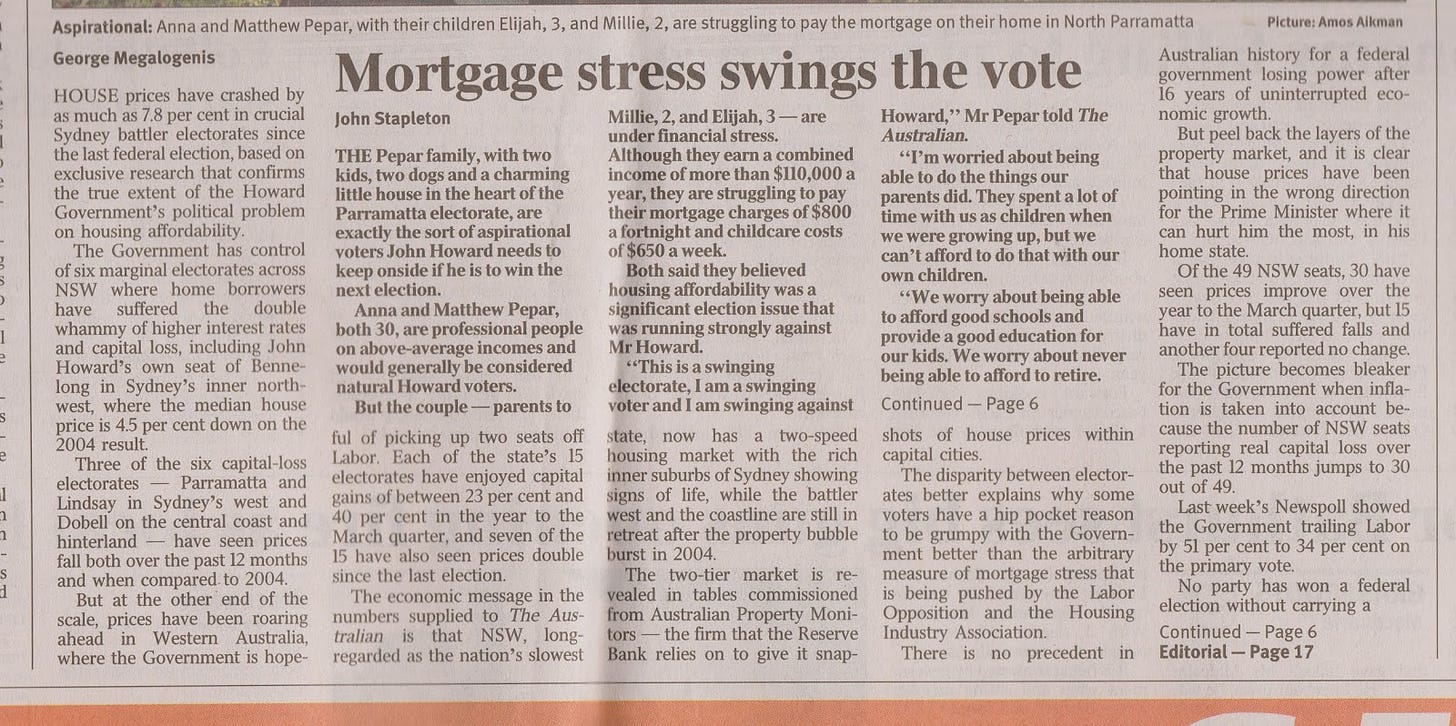Mortgage stress swings the vote, The Australian, 16 July, 2007. Page One. Picture Amos Aikman.


Mortgage stress swings the vote: [1 All-round Country Edition]
Stapleton, John. The Australian; Canberra, A.C.T. [Canberra, A.C.T]16 July 2007: 1.
Abstract
TranslateAbstract
"This is a swinging electorate, I am a swinging voter and I am swinging against [John Howard]," Mr [Matthew Pepar] told The Australian.
"My friends aren't buying houses; they're continuing to rent, because they can't afford it."
"We could sell and lose money -- we've sunk stamp duty, our deposit, our hard-earned payments, and we're not building any future," Ms Pepar said. "Any renovations could be a waste of money and effort, given the whole suburb is going down."
Full Text
TranslateFull text
THE Pepar family, with two kids, two dogs and a charming little house in the heart of the Parramatta electorate, are exactly the sort of aspirational voters John Howard needs to keep onside if he is to win the next election.
Anna and Matthew Pepar, both 30, are professional people on above- average incomes and would generally be considered natural Howard voters.
But the couple -- parents to Millie, 2, and Elijah, 3 -- are under financial stress. Although they earn a combined income of more than $110,000 a year, they are struggling to pay their mortgage charges of $800 a fortnight and childcare costs of $650 a week.
Both said they believed housing affordability was a significant election issue that was running strongly against Mr Howard.
"This is a swinging electorate, I am a swinging voter and I am swinging against Howard," Mr Pepar told The Australian.
"I'm worried about being able to do the things our parents did. They spent a lot of time with us as children when we were growing up, but we can't afford to do that with our own children.
"We worry about being able to afford good schools and provide a good education for our kids. We worry about never being able to afford to retire.
Continued -- Page 6
From Page 1
"My friends aren't buying houses; they're continuing to rent, because they can't afford it."
The Pepars were renting on Sydney's affluent north shore when in 2004, with a baby on the way, they decided to bite the bullet and buy a house.
They settled in the Parramatta electorate because prices were lower and they did not have a large deposit. They paid $419,000 for their freestanding timber house with an average-sized garden. Three years later, its value has not increased.
"We could sell and lose money -- we've sunk stamp duty, our deposit, our hard-earned payments, and we're not building any future," Ms Pepar said. "Any renovations could be a waste of money and effort, given the whole suburb is going down."
Ms Pepar, a human resources manager, said she had been forced to return to work because of high mortgage costs, although she was concerned about leaving the children while they were so young.
"All our generation are going through it -- a lot of our friends have kids under three, and it's a big question whether the women can afford to stay at home with their kids."
Federal MP for Parramatta Julie Owens said housing affordability was a huge issue in the electorate. "People end up in my office talking about losing their houses -- it's very distressing."



